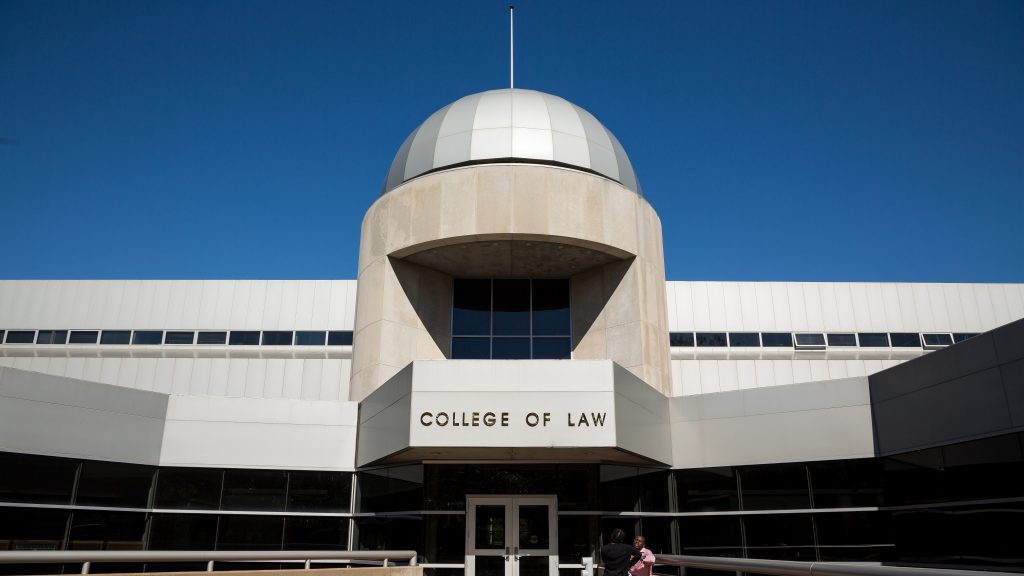The American Constitution Society and Federalist Society hosted a panel featuring UI law faculty members Paul Gowder, Todd Pettys, and Joseph Yockey called “Free Speech on Campus.”
The Thursday afternoon discussion involved moderators posing questions to the panelists regarding issues of speech restrictions and incidents in which speech has been silenced on campuses.
“If you’ve watched the news lately, this has been a contentious issue in Iowa and across the country, so we thought this would be a good issue to bring both perspectives [to the table],” said Drew Lakin, a member of the UI chapter of the American Constitution Society.
The first topic brought up was the case of speech that the government can or cannot restrict, especially in regard to hate speech.
Pettys said such language was defined not to prevent outrage but to prevent physical violence, and Yockey noted that the court system hasn’t truly reached a consensus on what constitutes hate speech, because doing so could create a system that encourages widespread censorship.
RELATED: Free speech holds the day in the IMU
Yockey also noted how many civil-rights movements in American history would never have occurred without the First Amendment, and that current incidents regarding the silence of speakers on campus comes not from administrators but from students.
Numerous cases were discussed throughout the discussion, including author Charles Murray’s talk at Middlebury College, in which a group of protesters assaulted Murray and injured a professor he was with.
Another incident brought up was when students and faculty protested a speech by US Attorney General Jeff Sessions at Georgetown University, in which members of the public who did not belong to the group that invited Sessions to speak were barred from attending in fears that protesters would disrupt the lecture.
“Right now, there’s this panic where [people are saying that] everybody wants to censor everything on campuses. I don’t think there’s any evidence for that,” Gowder said. “We have a handful of salient stories of bad things happening, but that doesn’t mean there’s a general trend.”
RELATED: Free or hate? Speech in the cross hairs
The speakers discussed the difference between public and private universities paying for or canceling talks by lecturers, as well as the legal differences between the government censoring speech and the public doing it.
Pettys and Yockey said violent and disruptive protests were counterproductive to the protesters’ causes. They argued that the general public might view these actions and begin to sympathize more with the people whose lectures were shut down, effectively turning them into free-speech martyrs.
Gowder said protesters can prevent the range of socially acceptable ideas from shifting through their actions, and the other speakers argued that silencing others and discriminating against them based on their viewpoints can create headlines that disservice the protesters.
After around 45 minutes, the panelists took a few questions from the audience. From these queries, they discussed the issue of money influencing speech, the constitutionality of campuses limiting free speech to certain areas, and how the choice of whether to bake a cake for a same-sex wedding is a major free-speech issue.
“Freedom of speech is everything. You don’t really have a Constitution without freedom of speech,” Micah Hawker Boehnke, the secretary of the UI chapter of the Federalist Society said. “We wanted to showcase freedom of speech and where lawyers and the law stand on it.”



